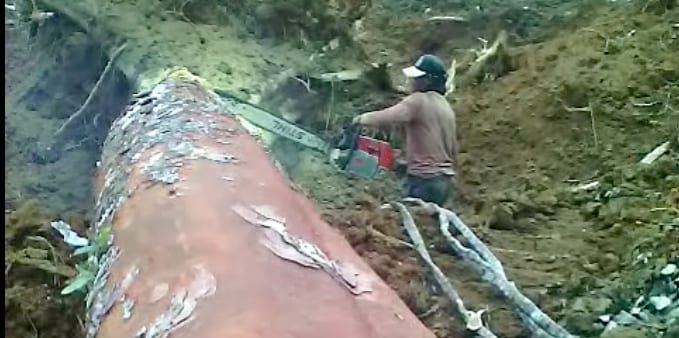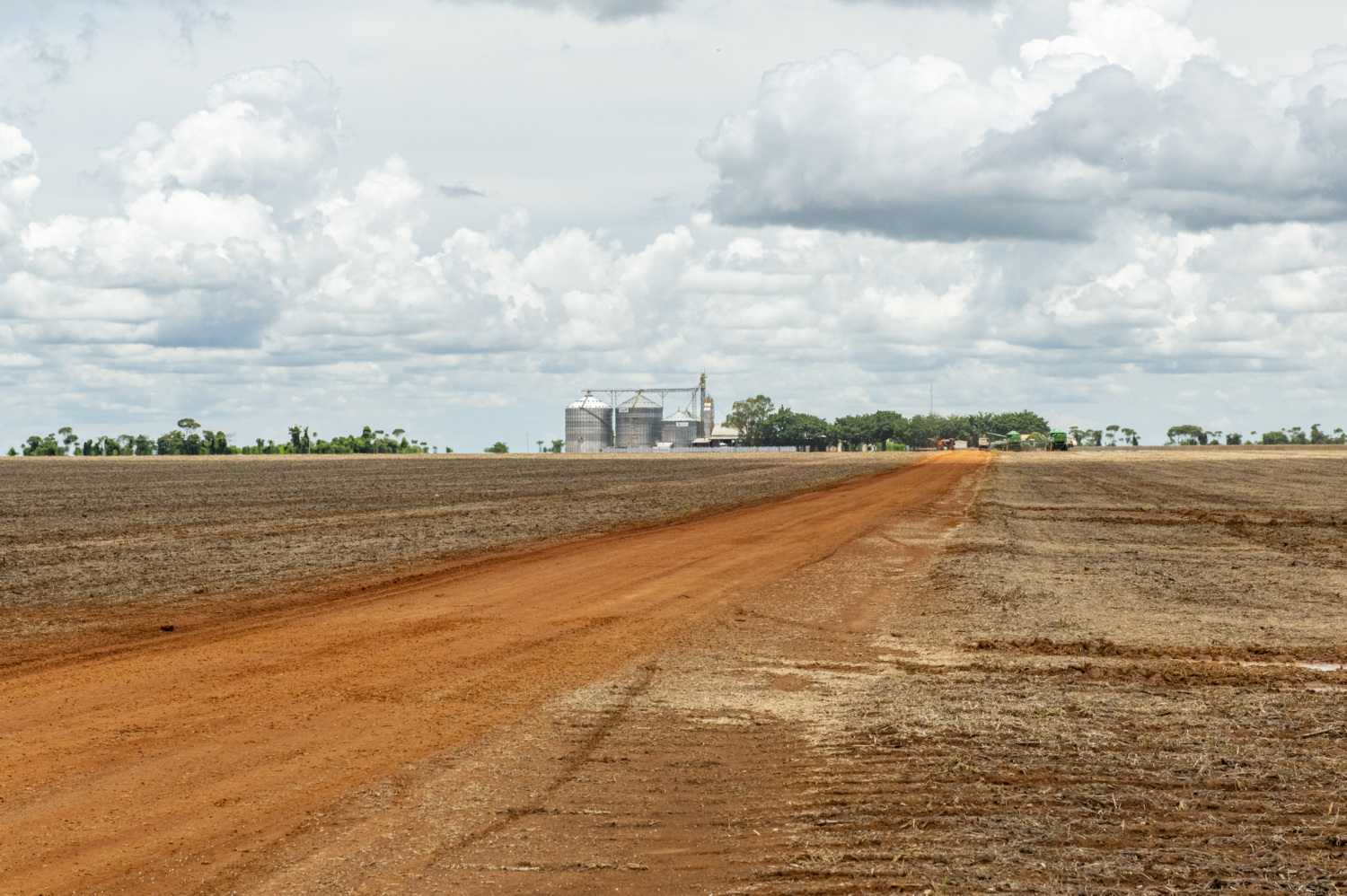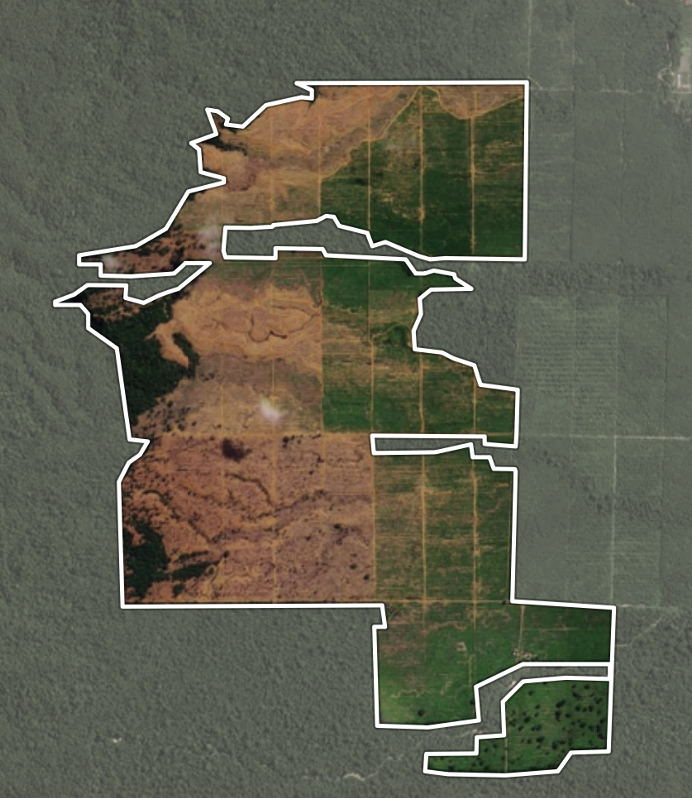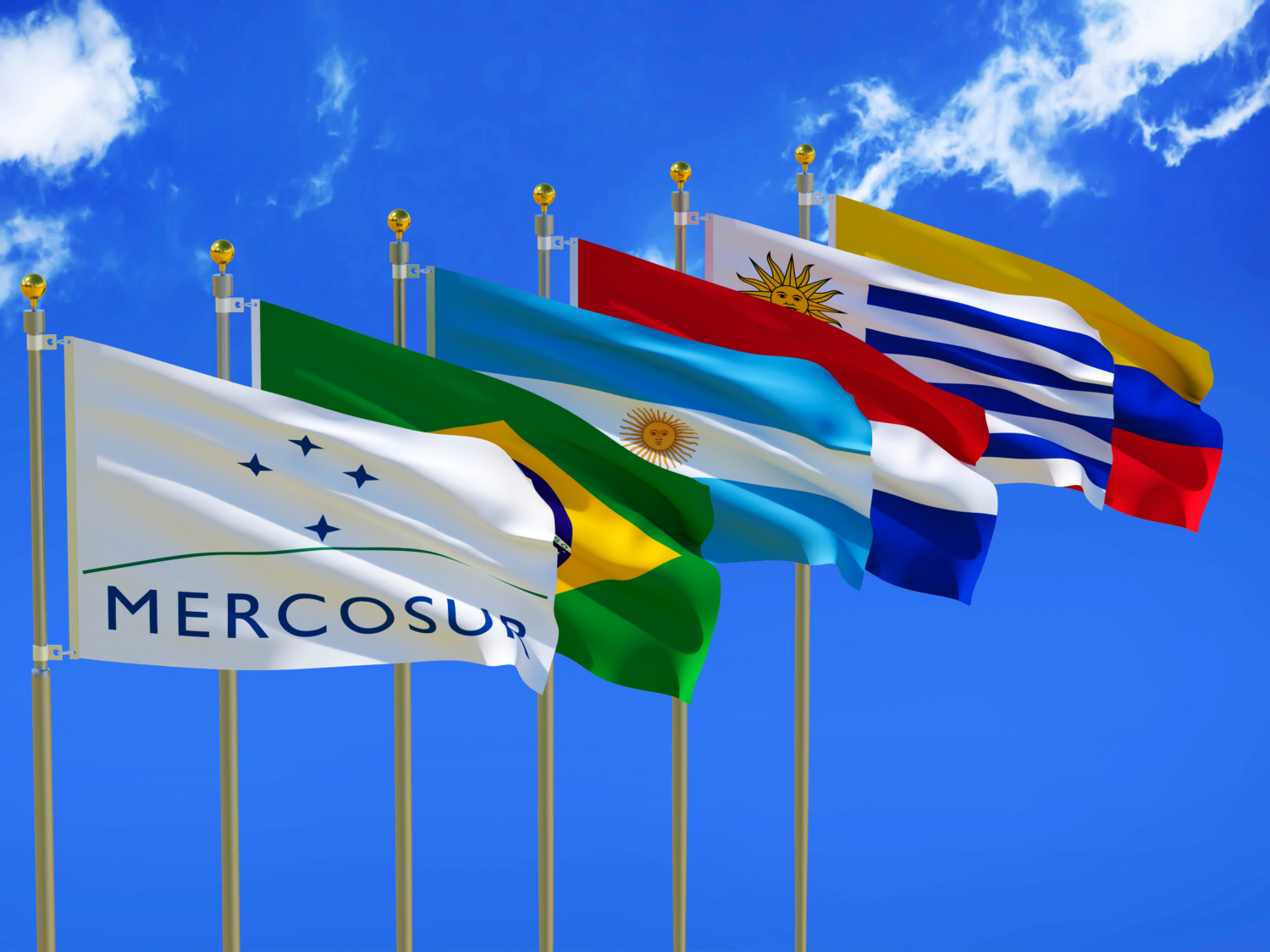
Olam’s Newfound Transparency Constructive But It’s Not Ready to Put Down the Chainsaws
Earlier today, Olam held a teleconference for reporters and issued a response to our report in which it acknowledges extensive deforestation in Gabon, but also responded to the actions suggested in the report by revealing its third party suppliers, and saying that it would apply its policies to them immediately.
We are happy that Olam has responded with these constructive moves. Today, Olam has cracked open its black box to the light of day.
We will be discussing information we have about the newly published suppliers with Olam in due course. However, some of the suppliers that Olam listed have been reported already in the public domain as having significant links to deforestation and human rights abuses, providing ample evidence for Olam to act on these irresponsible suppliers immediately. Details on some of the suppliers are below:
Sarawak Oil Palms:
- Climate Advisers: Bunge and Sarawak background
Felda:
- The Guardian: The multimillion dollar palm oil deal we should all be worried about
- Rainforest Action Network: Malaysian Palm Oil Giant Felda Global Ventures (FGV) Remains Embroiled in Modern Day Slavery Controversy
- Chain Reaction Research: BREAKING – FELDA GLOBAL VENTURES (FGV) WITHDRAWS MILLS FROM RSPO
IOI:
In addition, important questions remain about Olam’s sourcing, such as:
- How are they defining their “No Deforestation” requirement for their suppliers- according to the HCSA industry standard or their self-invented looser definition that still permits deforestation?
- Will they reveal their mill locations on Global Forest Watch and be transparent about their risk assessment process, as their peers have done?
- Will they extend their No Deforestation, No Burning, No Peat, and No Exploitation sourcing standards to all their commodities around the globe, such as rubber, cocoa, sugar, and others? Olam is reputedly the #1 or #2 for cocoa, coffee, cotton, rice, and more. If it changes across all its commodities, this would be a major step forward for the planet.
In its statement, Olam says it has cleared 25,735 ha of forests in Gabon, which was higher than our conservative estimates. Olam claims that this was “heavily logged over or degraded forest,” but our videos from Brainforest’s undercover investigation revealed beautiful, massive, ancient trees being bulldozed, chainsawed, and cleared to make way for Olam’s plantation development. A majority of Olam’s competitors would be protecting such trees and forests based on their No Deforestation commitments. Moreover, today Olam is claiming that the forests they have cleared are “highly logged and degraded secondary forests.” Yet, it appears that in Olam’s own documents, it previously classified up to 9,000 ha of the forest they have cleared as ‘relatively undisturbed or lightly logged’(see page 50 of the technical report).
Olam justifies its deforestation by arguing that the definition of deforestation should be more lenient in a heavily forested landscape like Gabon than in Indonesia, where forests are highly fragmented, without recognizing the irony that Indonesia was once too covered with rainforests until companies logged, bulldozed, and burned 30,000 square kilometers of it over the past four decades. Now, in areas like Sumatra and Malaysian Borneo only 20-30% of the forests remain. We have a chance to stop history from repeating itself in Gabon and throughout Africa. Olam, as the company establishing the largest palm oil operation in Africa, has the opportunity to set a different example.
Olam tries to justify its deforestation by arguing that high forest countries like Gabon need the monoculture plantations that have caused so much destruction in Southeast Asia. It is exactly the world’s last remaining large intact forests that should be the priority for conservation. Instead, Olam should focus its development on Africa’s 48 million hectares of degraded land, where agriculture can be expanded without threatening forests and wildlife. Olam’s monoculture plantation development threatens to leave leave local communities dependent on large, foreign multinational corporations without forests for subsistence.
There is also significant opportunity to engage donor governments in providing financial incentives for forest conservation and smallholder agricultural development in Gabon. For instance, Liberia recently announced an agreement with Norway to provide financial support hand in hand with conservation measures. Moreover, let’s not forget that Gabon has enormous, and virtually untapped potential for ecotourism – we have only to look at the success of Rwanda’s gorilla tourism to see that Gabon could make more money off saving its forests than by razing them.
Featured photo taken from footage from Mighty partner Brainforest’s field investigation.


